Peter Sagan rode a Specialized S-Works Roubaix equipped with a modified Future Shock damper and unreleased Specialized Mondo tyres at his last-ever Paris-Roubaix.
The former world champion, who is due to retire at the end of 2023, didn’t play a part in the day’s action, crashing out of the race on the second set of cobbles after just 100km of racing.
A rare sighting of the Roubaix at Roubaix
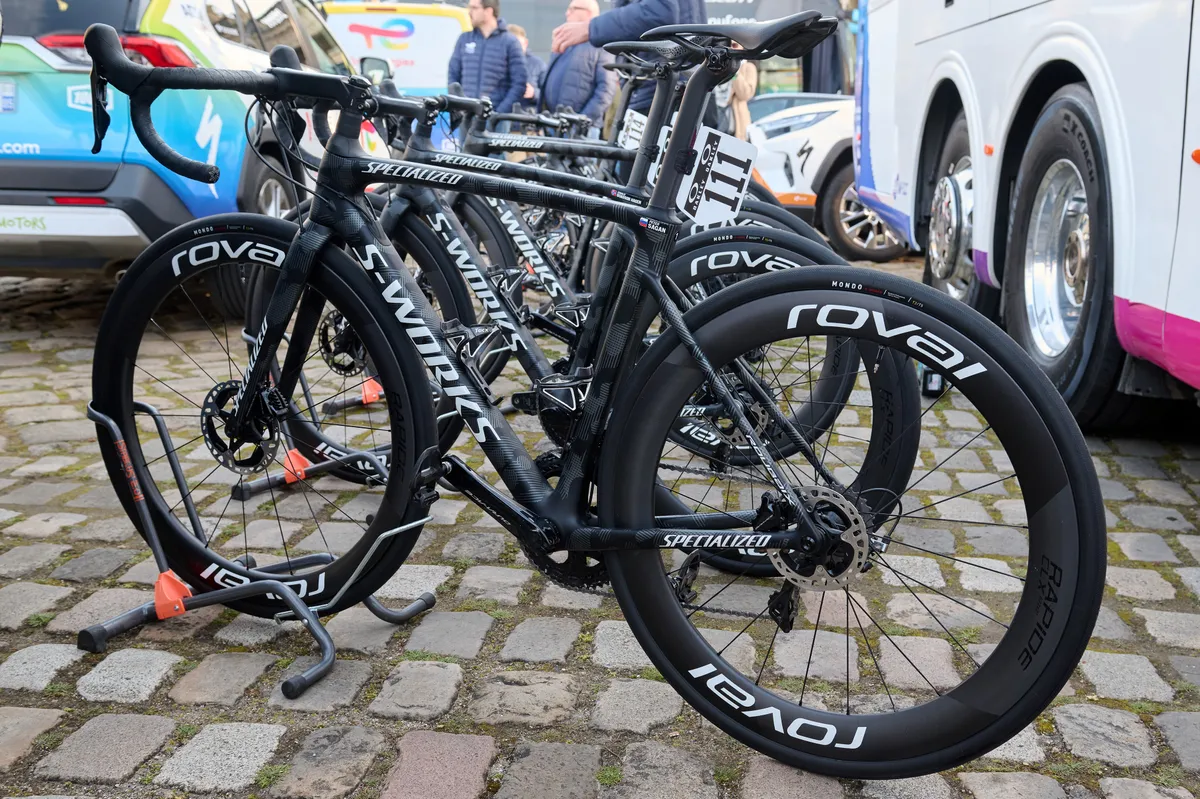
Sagan's final Roubaix bike itself was a fitting nod to the past decade, in which he has been one of the key protagonists at the cobbled Classics, winning the Tour of Flanders in 2016 and Paris-Roubaix in 2018.
Riding the Specialized Roubaix endurance bike, Sagan's TotalEnergies team was a notable outlier among the sea of aero bikes that now dominate Paris-Roubaix.
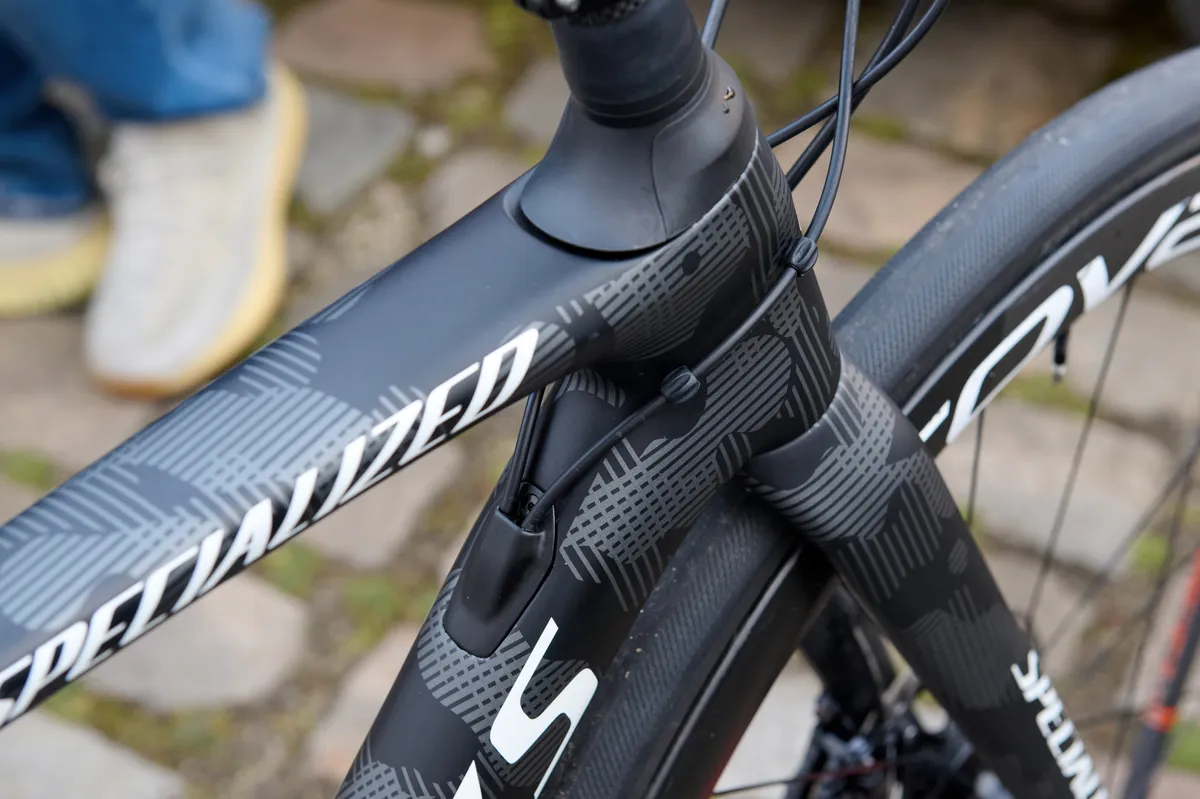
Indeed, some of Specialized's sponsored teams were on the usual race-day Tarmac SL7 – and it certainly cuts a sleeker figure than the Roubaix.
The Roubaix can make a claim to being the first endurance road bike, having been launched way back in 2004.
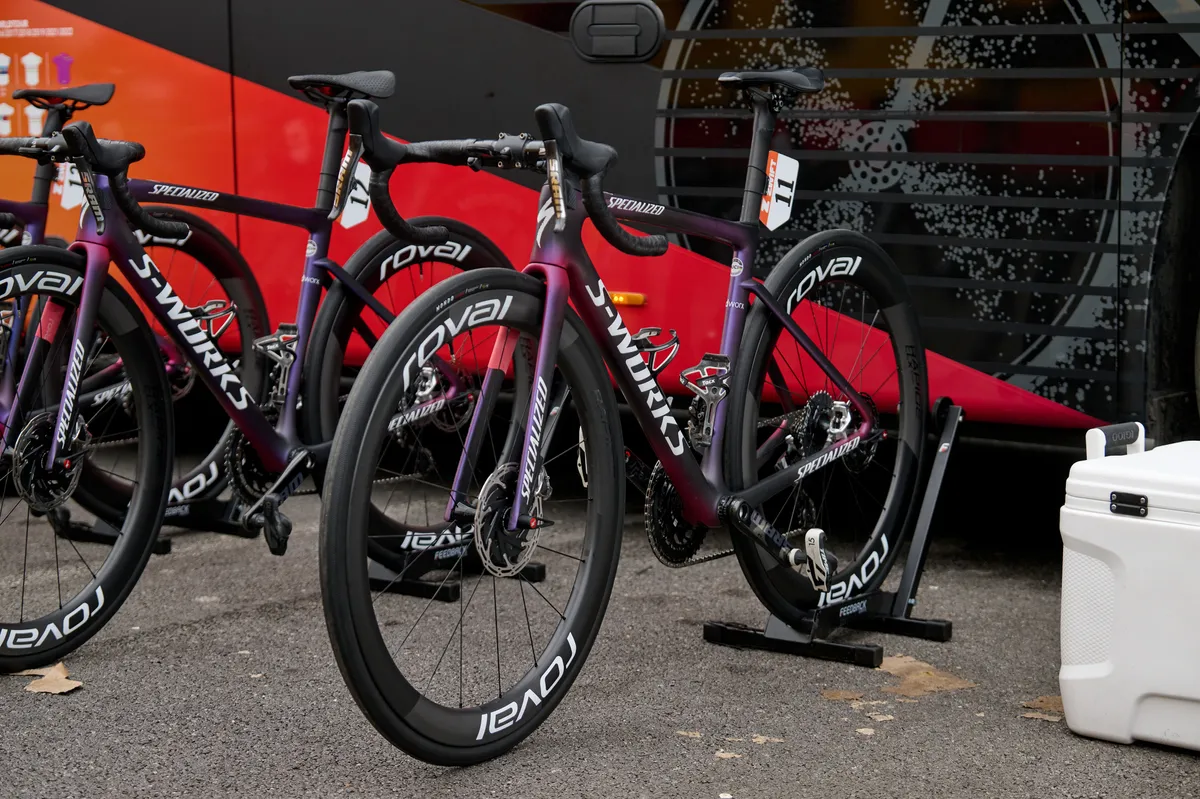
Lotte Kopecky's SD Worx team was on the Specialized S-Works Tarmac SL7 for Paris-Roubaix Femmes.With a more relaxed geometry, it marked a new direction for road bikes, and the Roubaix is now on its sixth iteration.
- Roubaix – 2004
- Roubaix SL2 – 2008
- Roubaix SL3 – 2010
- Roubaix SL4 – 2012
- Roubaix with Future Shock – 2017
- Roubaix with Future Shock 2.0 – 2019
Endurance road bikes dominated the early 2010s at Paris-Roubaix, with the likes of the Trek Domane and the Cannondale Synapse featuring at the sharp end alongside the Specialized Roubaix.
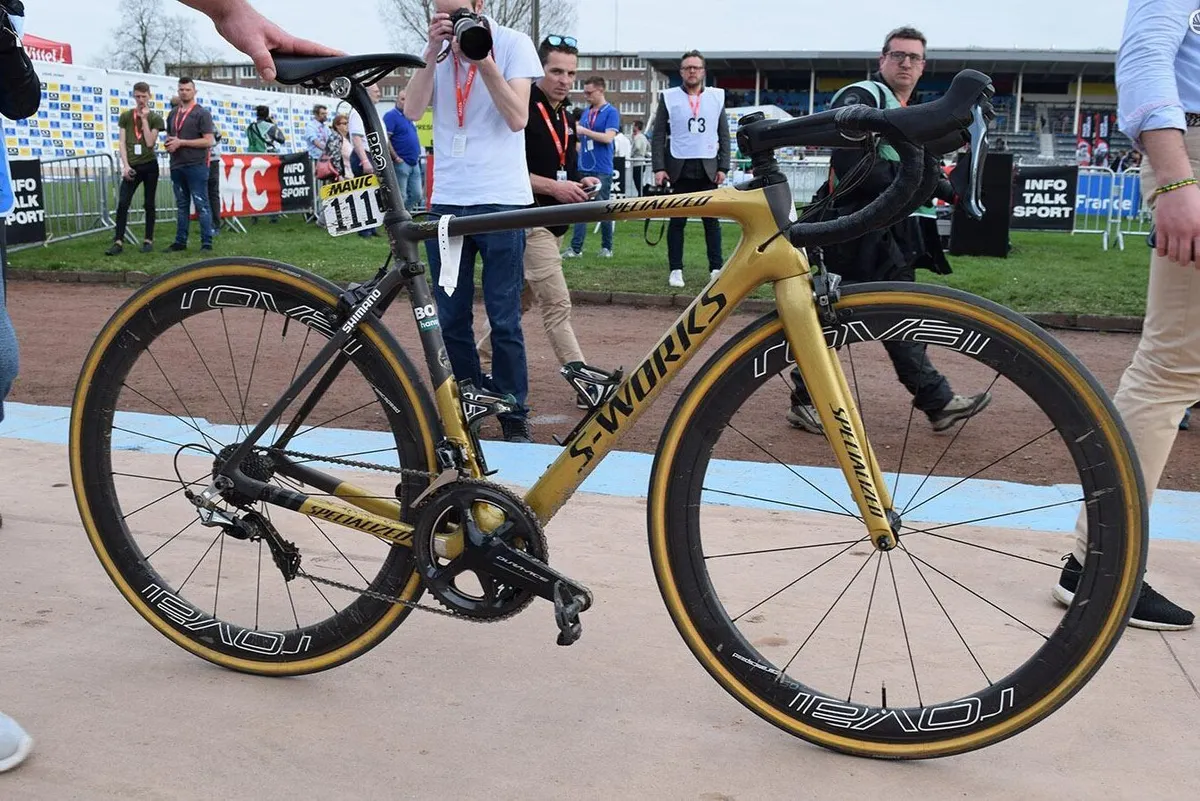
Mat Hayman's 2016 win on the Scott Foil marked the start of the aero era, though, with Sagan's 2018 win coming on the original Specialized Roubaix with Future Shock (and a pro-only rim brake version at that), endurance bikes went down with a fight.
However, with 30mm+ clearance commonplace on the best aero road bikes, endurance bikes are a thing of the past at the Classics. Cannondale's repositioning of the Synapse, which now has integrated lights, is a testament to that.
Where will Specialized take the Roubaix next? With the current model released in 2019, an update is likely to be around the corner.
Mechanical, of course
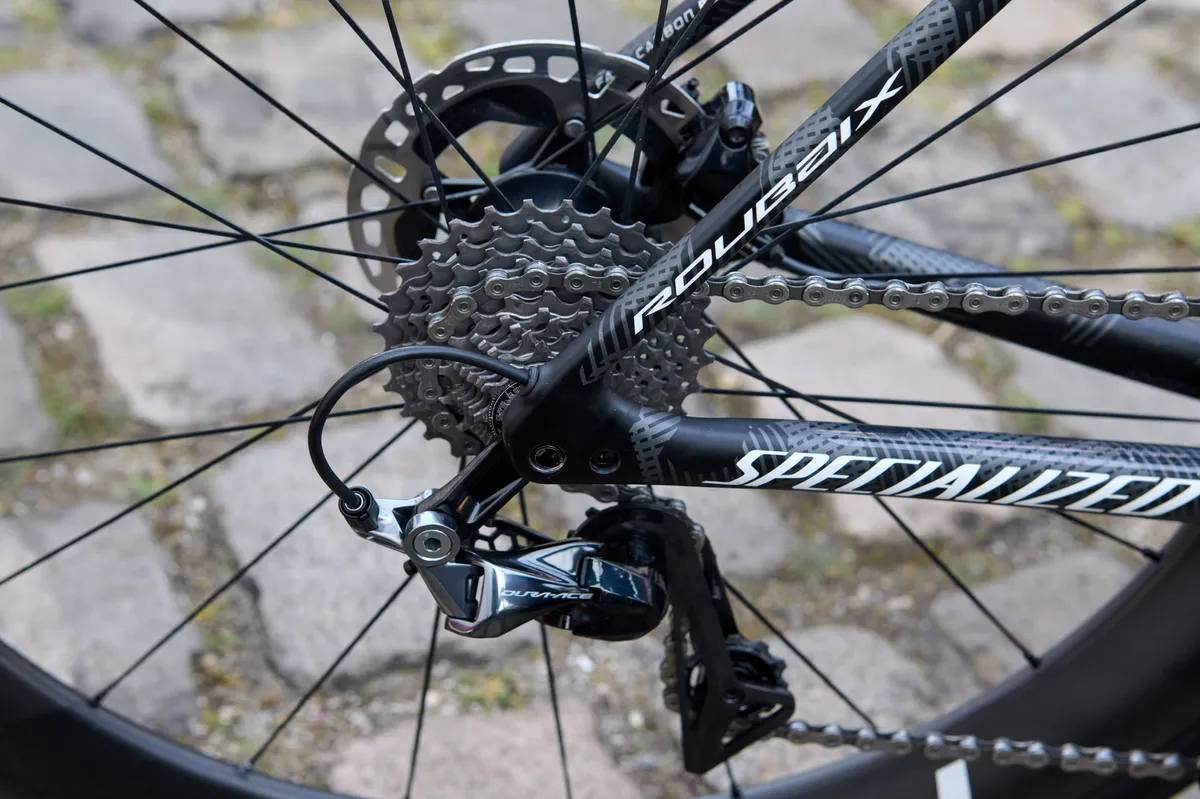
Sagan's untimely departure from the race also likely signals the end of another era in pro cycling tech, because the Slovakian is the last WorldTour rider who regularly opts for mechanical shifting at cobbled events.
In years gone by, it wasn't uncommon for some riders to switch from electronic shifting to mechanical for Paris-Roubaix – Fabian Cancellara among them.

Shimano Di2, SRAM AXS and Campagnolo EPS are now ubiquitous, however. Still, as the Classics' elder statesman, Sagan doggedly lined up with mechanical shifting once again for this year's Hell of the North – a lovably esoteric choice in a world almost totally dominated by electronic groupsets.
Mechanical groupsets are almost never seen at the WorldTour level, with all teams running electronic groupsets for day-to-day racing.
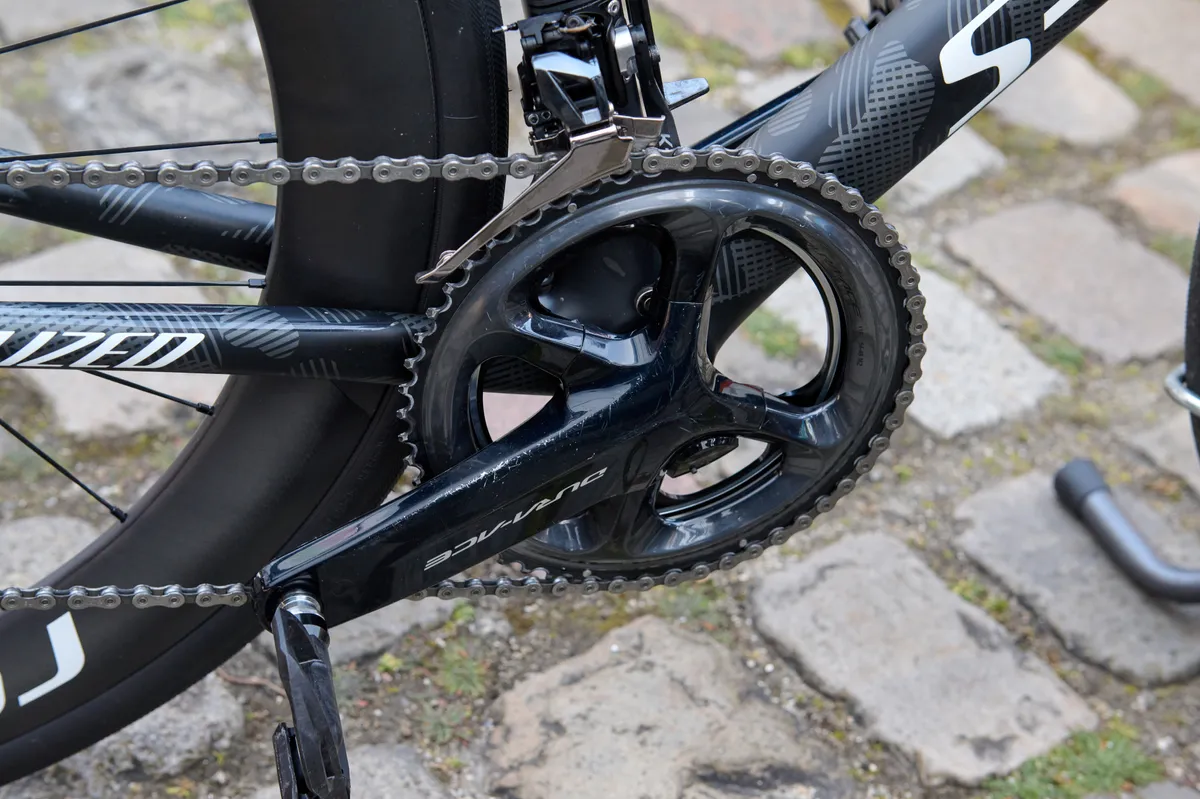
Sagan opted for an 11-speed Shimano Dura-Ace R91000 groupset.
The 54/46t crankset provides a big gear, but is suitable for the relatively flat parcours of the Hell of the North. This was paired with an 11-30t cassette.
A modified Future Shock damper

The Roubaix uses the Specialized Future Shock system – a 20mm travel suspension unit that sits between the stem and head tube.
However, Sagan’s bike sported a subtly different Future Shock setup compared to a stock Roubaix.
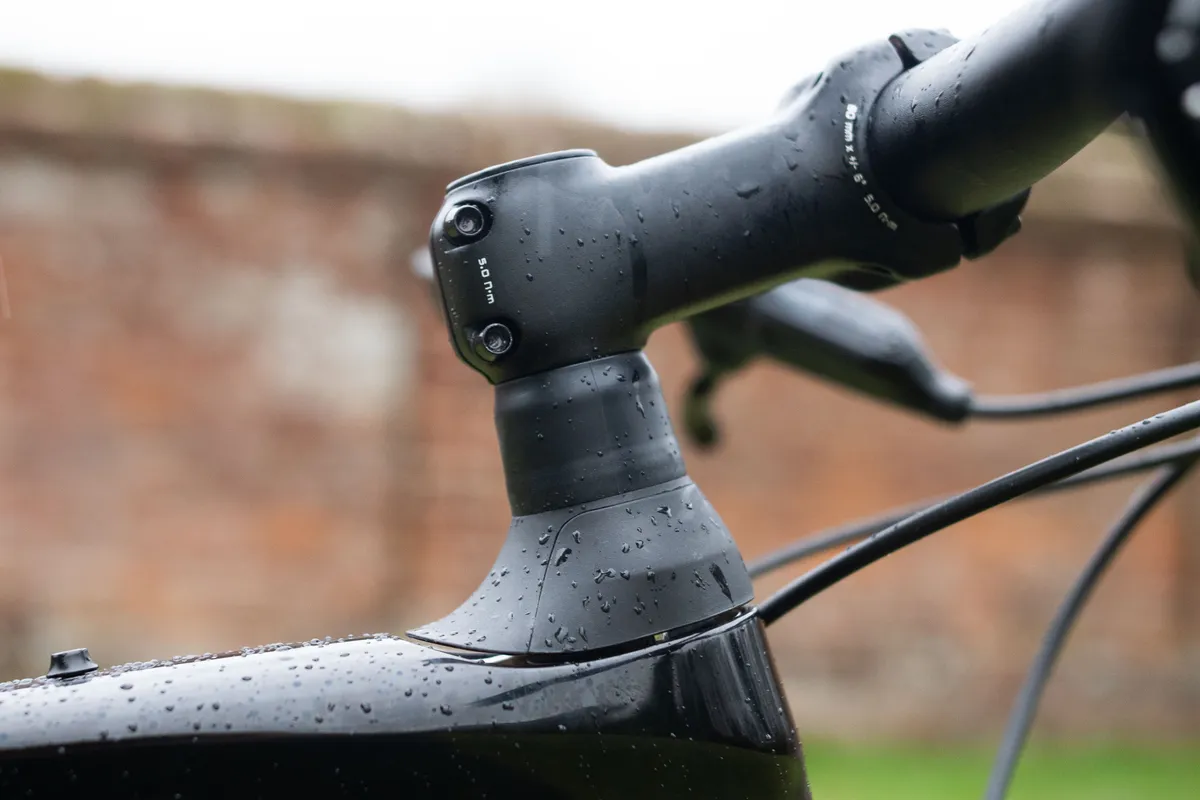
To start, the design of the headset top cover is slimmer, with the headset preload bolts hidden beneath a clip-on shroud. The preload bolts sit proud of the top cover on a stock Roubaix.
This same new top cover is used on the Specialized Sirrus Carbon urban bike. Could this design be rolled out on all new Future Shock-equipped bikes? Or is it a one-off for pro use only?

The Future Shock adjuster – which controls the lockout of the system – is also different.
The stock adjuster is circular and coated with rubber, with small indentations around the outside edge.
The adjuster on Sagan’s bike has wings moulded into it, and a small lip that extends back towards the top tube. It also appears to be made from alloy, rather than plastic.
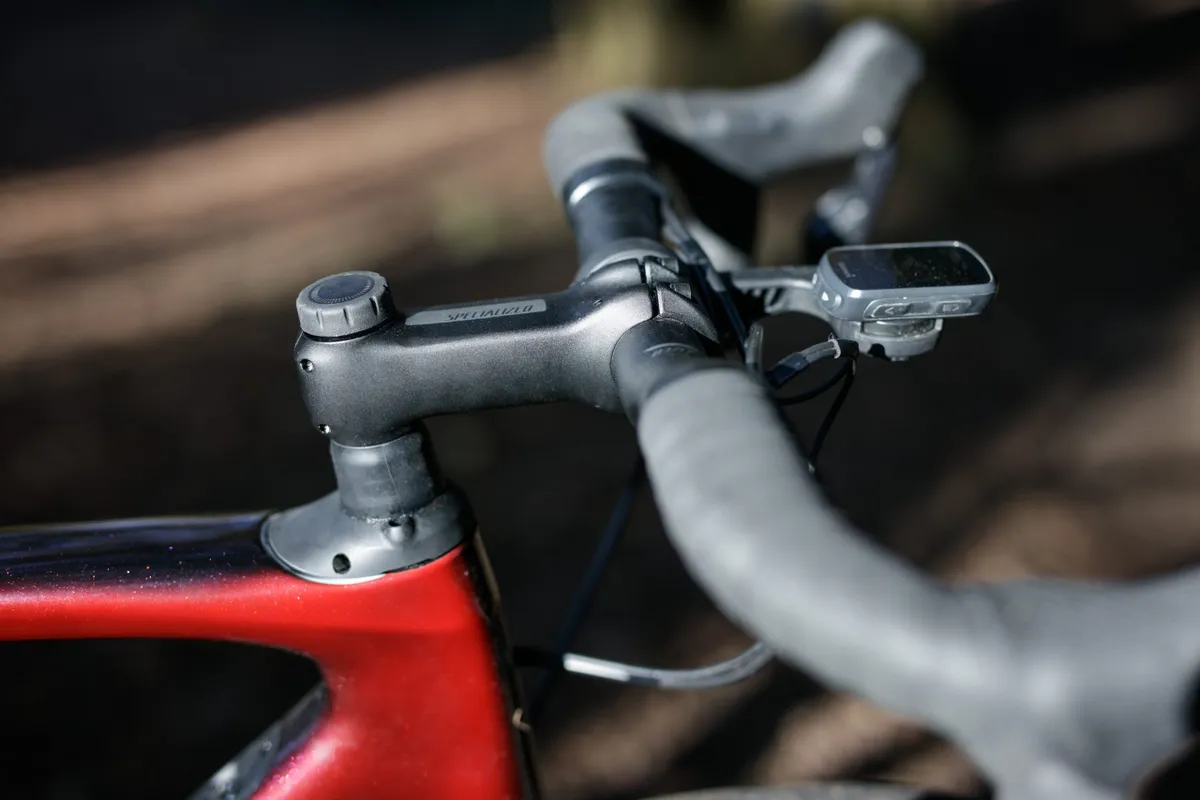
It’s possible this adjuster is another pro-only option designed to offer more control on the cobbles.
There’s also a chance the design suggests a new Future Shock damper is in testing.
As we've already covered, the Roubaix hasn’t been updated since early 2019, so we wouldn’t be surprised to see new designs teased in the near future. We have contacted Specialized for more information.
Sagan trials new tyres
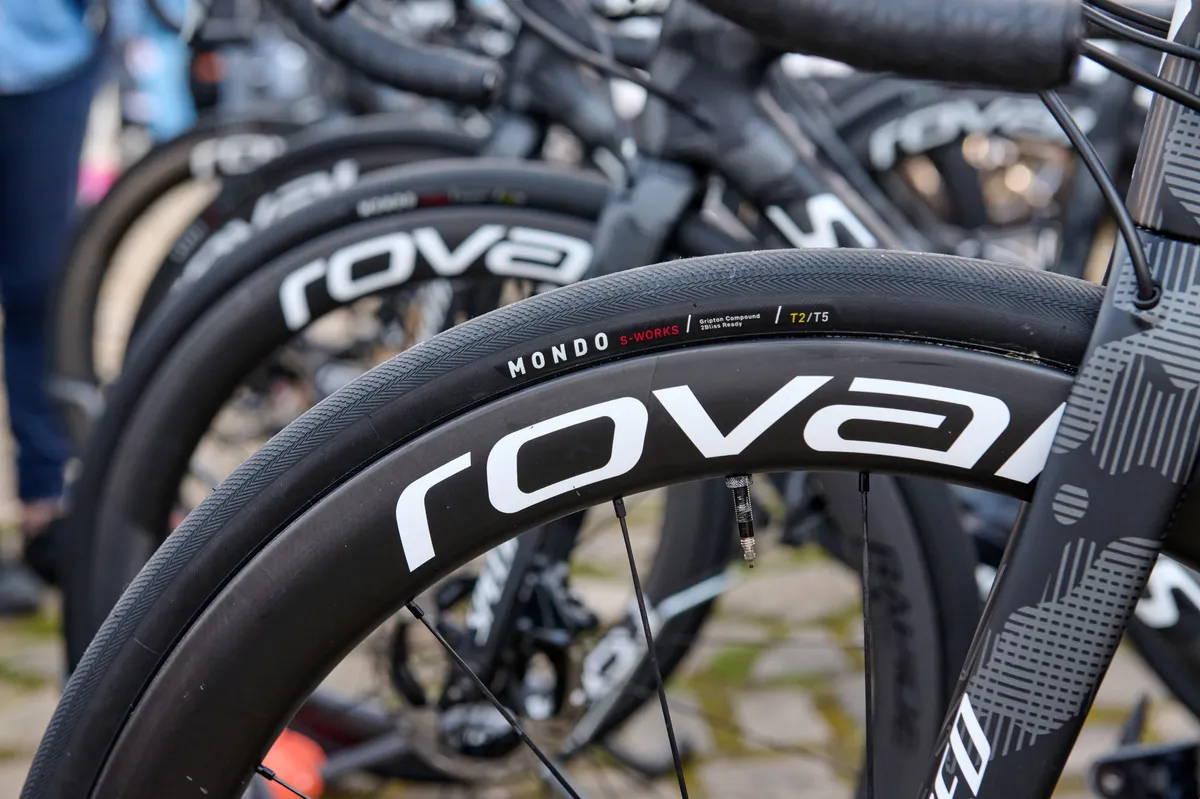
Sagan’s bike was fitted with a pair of unreleased 32mm-wide Specialized Mondo tyres fitted to 65mm-deep Roval Rapide CLX wheels.
The tyres use Specialized’s Gripton compound, with a T2 and T5 mix. The same formula is used on the brand’s S-Works Turbo and S-Works Turbo RapidAir tyres.
Want to learn more? Here’s everything we know about Specialized’s new Mondo tyres so far.
Will we see the Specialized Roubaix again at Paris-Roubaix? What's on your wish list for the next-generation Roubaix? Let us know in the comments below.
